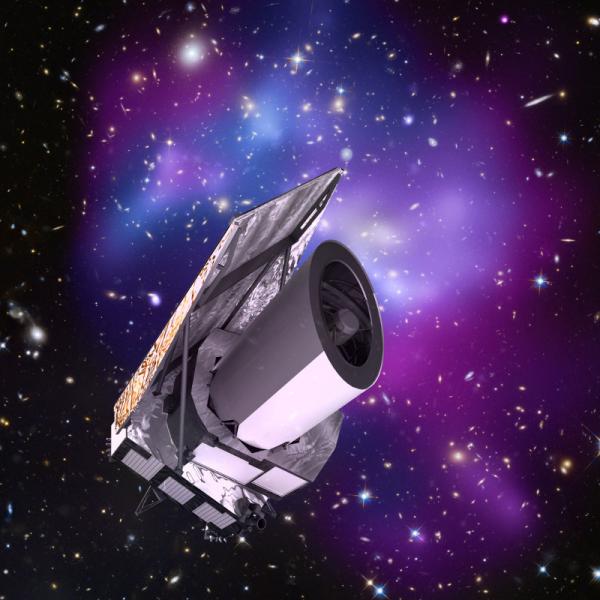Euclid Collaboration

Euclid is an ESA medium class astronomy and astrophysics space mission which launch is planned for Q1 2020. The Euclid mission aims at understanding why the expansion of the Universe is accelerating and what is the nature of the source responsible for this acceleration which cosmologists refer to as dark energy.
Euclid will explore how the Universe evolved the past 10 billion years to adress questions related to fundamental physics and cosmology on the nature and properties of dark energy, dark matter, and gravity, as well as on the physics of the early universe and the initial conditions which seed the formation of cosmic structure.
The imprints of dark energy and gravity will be tracked by using two complementary cosmological probes to capture signatures of the expansion rate of the Universe and the growth of cosmic structures: Weak gravitational Lensing and Galaxy Clustering (Baryonic Acoustic Oscillations and Red-shift Space Distortion). Euclid will probe the expansion history of the Universe and the evolution of cosmic structures by measuring the modification of shapes of galaxies induced by gravitational lensing effects of dark matter and the 3-dimension distribution of structures from spectroscopic red-shifts of galaxies and clusters of galaxies. Euclid will observe 15,000 deg2 of the darkest sky that is free of contamination by light from our Galaxy and our Solar System.
Pages
Address
Département de Physique Théorique
Université de Genève
24, quai Ernest Ansermet
1211 Genève 4
Switzerland
Directions & contact



